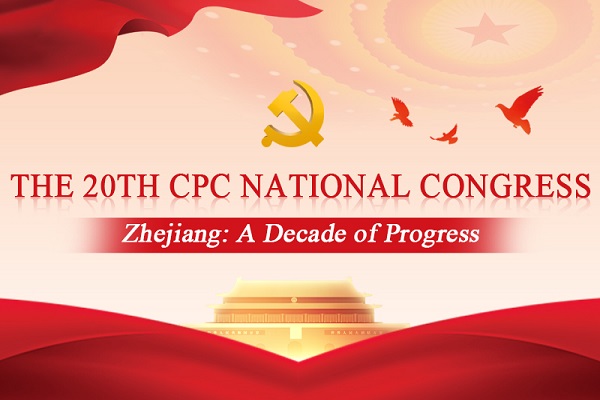'Digital gunboat' policy will not stop innovation's eastward shift
At the World Internet Conference Wuzhen Summit that opened in East China's Zhejiang province on Sunday, the China Academy of Cyberspace Studies released two reports-one on the development of the internet in China in 2021 and the other on its global development this year.
According to the first report, the internet has seen steady and sound growth in China in the past year with the aim of building a digital society and a digital government. It has also greatly aided efforts at epidemic control, virus tracing, vaccine and drug research and development, and the resumption of work and production.
The report on the internet's global development shows that China and the United States are leading it, but global internet innovation is showing an increasingly eastward shift.
The two reports summarize the world's digitalization, which is now at an important juncture as it transitions from an industrial civilization to a digital civilization, with digital technology being integrated into economic, political, cultural, social and ecological fields and greatly impacting production.
The digital civilization has a bright future, but different countries and regions are at different stages of progress, resulting in the widening of the information gap and the gap between the rich and the poor. For example, despite a booming digital economy, around 3.6 billion people in the world, mainly in developing countries, still do not have access to the internet. It is imperative for the international community to join hands to break the digital barriers and bridge the digital divides.
But for some time now, the US has imposed one round of sanctions after another on Chinese technological companies, and added Chinese enterprises to its "entity list". The US government's crackdown against Huawei is unparalleled. Not only has it tried to cut its chip supply chain, but also detained Meng Wanzhou, its chief financial officer, for nearly three years. The series of "digital gunboat policies" the US has implemented are aimed at maintaining its digital hegemony in the name of safeguarding its national security.
China is now striving to energize the digital economy, optimize the digital social environment and apply the latest digital technologies to all walks of life. It is also committed to working with other countries to bridge the digital divide, oppose digital hegemony, break out of the zero-sum trap and build a community with a shared future in cyberspace.
- Beijing Youth Daily


 Red boat spirit inspires new developments
Red boat spirit inspires new developments Zhejiang: A Decade of Progress
Zhejiang: A Decade of Progress A look at Jiaxing's H1 economic data
A look at Jiaxing's H1 economic data